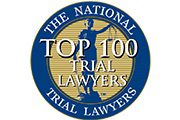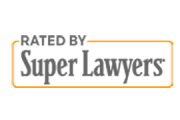MOTIONS TO SUPPRESS - ORANGE COUNTY
ORANGE COUNTY'S "BEST" OR "TOP-RATED" DUI DEFENSE LAWYERS RATED BY SUPER LAWYERS, ORANGE COUNTY'S "TOP-RATED" DUI DEFENSE ATTORNEYS
Motions to Suppress & The Fourth Amendement
The Fourth Amendment mandates that the following rights apply to all:
The right of the people to be secure in their persons, houses, papers, and effects, against unreasonable searches and seizures, shall not be violated, and no Warrants shall issue, but upon probable cause, supported by Oath or affirmation, and particularly describing the place to be searched, and the persons or things to be seized.

A Motion to Suppress Pursuant to Penal Code Section 1538.5
A Motion to Suppress ensures that an individual’s Fourth Amendment rights are protected. In the absence of a warrant or some exigency, an officer needs an objective violation of the law to detain an individual, whether on the street or driving. This is usually found through a violation of the vehicle code or some other law. A Motion to suppress, pursuant Penal Code Section 1538.5, allows a defendant to challenge an officer’s proffer of reasonable suspicion. If granted, everything after the illegal stop is thrown out because the search and seizure are deemed illegal.
In Whren v. United States (1996) 517 U.S. 806 the Supreme Court held that, in the absence of a warrant, an officer must see an objective violation of the law, or have reasonable suspicion that a crime is about to occur or has occurred, before an officer may detain an individual. An officer’s subjective intentions are irrelevant. An objective violation must be articulated. In Heien v. North Carolina (2015) 135 S.Ct. 530, the Supreme Court re-iterated the “objectively reasonable standard” stating that even a mistake of law must be objectively reasonable.
Because an arrest without a warrant is presumptively illegal, the burden at a motion to suppress rests upon the prosecution to prove the warrantless stop was legally justified. Mapp v. Ohio (1961) 367 U.S. 643; People v Williams (1999) 20 Cal.4th 119. In People v. Dowdy (1975) 50 Cal.App. 3d 180 at 183, the court held that "The rule forbidding the acquisition of evidence by illegal means is that not merely evidence so acquired shall not be used before the court but that it shall not be used at all... the rule operates to exclude indirect as well as the direct products of such invasions" reiterating Wong Sun v. United States (1963) 371 U.S. 471. Silverman v. the United States 365 U.S. 505 held that testimonial evidence is also excluded if obtained through an unlawful search.
The standard of proof at a Motion to Suppress Evidence pursuant to Penal Code Section 1538 is by a preponderance of the evidence. People v. James (1977) 19 Cal.3d 99. In People v. Dickerson (1969) 273 Cal.App.2d 645, the Court held that when there is a factual inconsistency in the testimony, yet the testimony on both sides is credible, and there is no warrant, the motion should be granted.
As a matter of procedure, in misdemeanor cases, a motion to suppress is heard before trial. In felony cases, a motion to suppress may be heard at the time of the preliminary hearing or on a date specifically set for the motion to be heard.
A Motion to Suppress - One of the Most Effective Ways to "Win" your Orange County Dui Case Without Proceeding to a Jury Trial
One of the most effective ways to win your case without the need to proceed to a trial is through a Motion to Suppress evidence pursuant to Penal Code Section 1538.5. If the motion to suppress is granted, the case will be dismissed regardless of the breath or blood alcohol level and regardless of whether other crimes were committed in the process of the DUI charges.
Peter F. Iocona and the DUI Defense Attorneys of The SoCal Law Network have the best record in Orange County for obtaining dismissals of DUI Charges through Motions to Suppress based on any one of the following alleged Vehicle Code Violations.
Noteworthy Fourth Amendment DUI Exceptions
There are certain exceptions to consider when evaluating the ability to succeed at a Motion to Suppress hearing. An experienced defense attorney will know how to properly evaluate all of the evidence to know best how to proceed in light of these exceptions to the Fourth Amendment of the United States Constitution.
A Motion to Suppress & DUI Checkpoint Cases
Keep in mind that every case is different. While the exceptions may have applied to the facts of those cases, they may not apply to yours; thus making your arrest unlawful and leading to the suppression of the evidence and a dismissal.
If you were arrested at a DUI Sobriety Checkpoint, or by officers and/or deputies working as part of a Driving Under the Influence DUI Saturation Patrol/Roving Patrol, there is usually audio and/or video as well, which can be integral pieces to your defense. Additionally, all the law enforcement agencies are required to document that the vehicles stopped at a Sobriety Checkpoint were done by way of a neutral mathematical formula to remove the unlawful authority of police officers serving as "greeters" at a checkpoint.
To learn more about Sobriety Checkpoints and DUI Saturation or Roving DUI Patrols, click one of the links below.
Objective Symptoms of Intoxication
Sometimes the driving alone is insufficient to justify a stop and detention, but the "totality of the circumstances" warrants the stop and detention, and there is an exception that permits the stop and detention. As a result, one must consider:
Orange County's "Best" or "Top-Rated" DUI Defense Attorneys
We thoroughly review all of the evidence that the government intends to use against you to develop defenses that win, especially a Motion to Suppress evidence pursuant to Penal Code Section 1538.5. There is no substitute for the experience that these high-powered DUI Defense Attorneys bring to your case and the impact they can have on the outcome of your case.
Orange County DUI Attorneys Providing DUI Defense in Orange County - Laguna Hills, Laguna Beach, Orange
CALL NOW!
FREE CONSULTATION: (949) 235-2250



